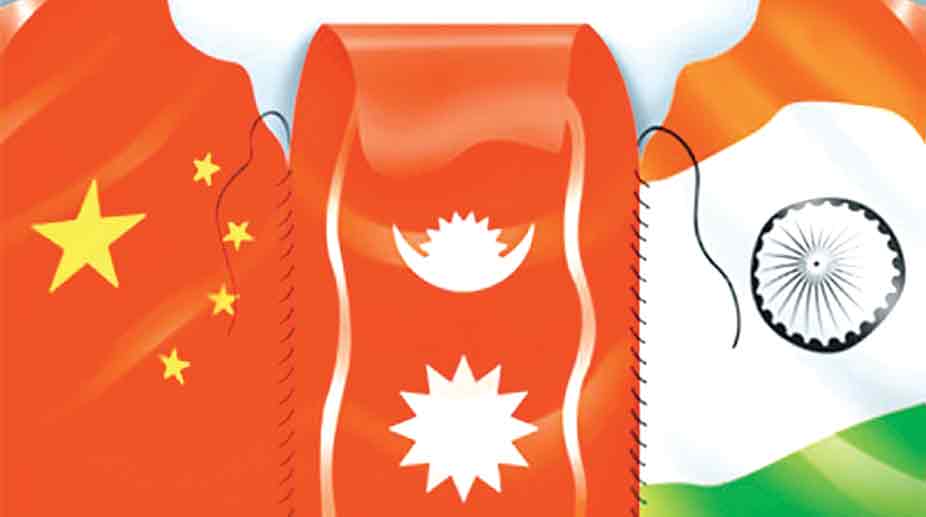Still unexplained
The hunt for the origins of Covid-19 has for the past four years been a tangled web of politics, power struggles, and international finger-pointing.

Located between the two most populous countries, India and China, which are also among the fastest growing economies in the world, Nepal can benefit greatly from her position. At the same time, this unique geo-political position presents tremendous challenges which require prudence and patience to overcome. False and imbalanced steps may prove costly. It is, therefore, in the best interest of Nepal that we make sure that the two giant neighbours neither compete nor collude with each other when it comes to their relationship with us.
Nepal is dependent on India for virtually everything from transit to the sea to trade to supplies. Even if we overcome manmade or economic dependencies, it’s not possible to get rid of natural dependency. Owing mainly to a mountainous terrain, transit through China cannot fully cut dependency on India.
Even the much-hyped Chinese railway, which has now reached Lhasa and is being extended to Kerung across the border from Rasuwa in north central Nepal, can’t offer a complete and lasting solution of Nepal’s transit requirements. So Nepal must maintain good neighbourly relations with India.
Advertisement
India’s age-old perception that Nepal lies in its ‘influence zone’ is the crux and the main source of all political problems and misunderstandings that arise between the two. A section of Indian politicians and bureaucrats and the jingoistic press believe or advocate that as their ‘Himalayan buffer’ and ‘backyard’, Nepal must kowtow to Delhi; and that China’s role in, and relationship with, Nepal should be limited. As far as Nepal is concerned, this view is simply out-dated.
Yes, in a bid to curry favour with India, Nepal’s power-hungry politicians may have, directly or indirectly, encouraged their overtures. But the times are changing and under public pressure, more and more rulers are independently exercising the country’s sovereign rights.
Unfortunately, some of Delhi’s elites are yet to understand and appreciate this changed psyche and picture of Nepali society. Of course, Nepalis too are not without blame. We suffer from an inferiority complex when it comes to our relationship with India which is a natural phenomenon among smaller states vis-a-vis big neighbours.
Some pathologically anti-India politicians and activists who claim themselves to be the only true ‘nationalists’ blame India for everything that goes wrong; and accuse anybody who doesn’t agree with them as being ‘Indian stooges’.
On the other hand, hardly anybody blames China of any conspiracy. This is because, unlike New Delhi, Beijing has always adopted a non-interventionist, ‘hands-off’ approach in Nepal’s internal affairs. She has always espoused a ‘state-to-state’ relationship only, having no secret deals with non-state actors and insurgents of different times and brands.
Quiet diplomacy has been Beijing’s norm. And her expectation from Nepal has been modest: control over the ‘free Tibet movement’ on Nepali soil is all she wants. And, Nepal’s rulers – from the days of the Khampa uprising till date – have always complied with this Chinese wish.
However, some recent developments suggest that China’s ways, and views, may have changed. Departing from their earlier modus operandi, these days the Chinese too have been pursuing a more open diplomacy, occasionally using the media to make public their concerns and even grievances.
With a rapid increase in Chinese investments and greater involvement of Chinese companies in construction and other businesses in Nepal, Chinese economic diplomacy too has become intense. So far so good; there is nothing to worry about.
However, some reports, if true, are alarming. Nepali media has widely hinted that China was the glue behind the ‘Left alliance’ formed some three months ago between the CPN-UML and the Maoist Centre.
These developments are worrying because Nepal wants to exercise her sovereign power and national independence free of southern intervention. This we have been doing, albeit slowly.
So, naturally we don’t want another India across the northern border. We want India to take a lesson from China’s non-interventionist policy and quiet diplomacy, not the other way around.
Possible Chinese inroads into Nepal’s internal politicking will only
provoke India’s ego and suspicion,
subsequently making Nepal a real or Cold War battlefield between the two.
It won’t counter India’s advancements
in Nepal. Will our neighbours on both sides understand our concerns and
sensibilities?
The Kathmandu Post/ANN
Advertisement